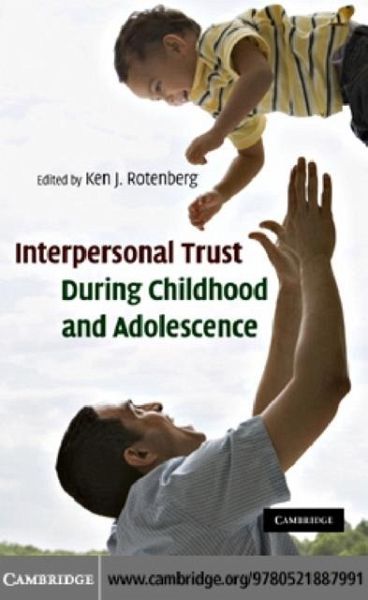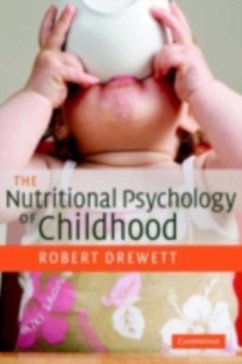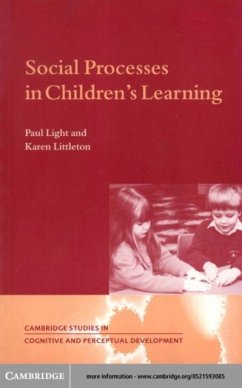
Interpersonal Trust during Childhood and Adolescence (eBook, PDF)
Versandkostenfrei!
Sofort per Download lieferbar
31,95 €
inkl. MwSt.
Weitere Ausgaben:

PAYBACK Punkte
16 °P sammeln!
Since the beginnings of psychology as a discipline, interpersonal trust has been regarded as a crucial aspect of human functioning. Basic levels of interpersonal trust among people were believed to be necessary for the survival of society and the development of successful psychosocial functioning. Some research has shown that interpersonal trust is linked to physical health, cognitive functioning, and social functioning (including close relationships) across development. This book presents research in the growing field of interpersonal trust during childhood and adolescence (up to the onset of...
Since the beginnings of psychology as a discipline, interpersonal trust has been regarded as a crucial aspect of human functioning. Basic levels of interpersonal trust among people were believed to be necessary for the survival of society and the development of successful psychosocial functioning. Some research has shown that interpersonal trust is linked to physical health, cognitive functioning, and social functioning (including close relationships) across development. This book presents research in the growing field of interpersonal trust during childhood and adolescence (up to the onset of adulthood). It deals with the extent to which children and adolescents demonstrate the multiple facets of trust and trustworthiness, and how these multiple facets affect their social relationships with a wide range of social contacts: parents, peers, and social groups. It will be of interest to developmental, social, educational and clinical psychologists.
Dieser Download kann aus rechtlichen Gründen nur mit Rechnungsadresse in A, B, BG, CY, CZ, D, DK, EW, E, FIN, F, GR, HR, H, IRL, I, LT, L, LR, M, NL, PL, P, R, S, SLO, SK ausgeliefert werden.













